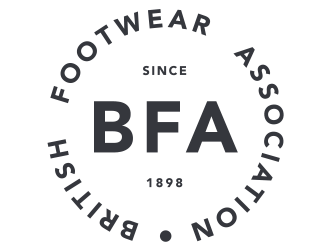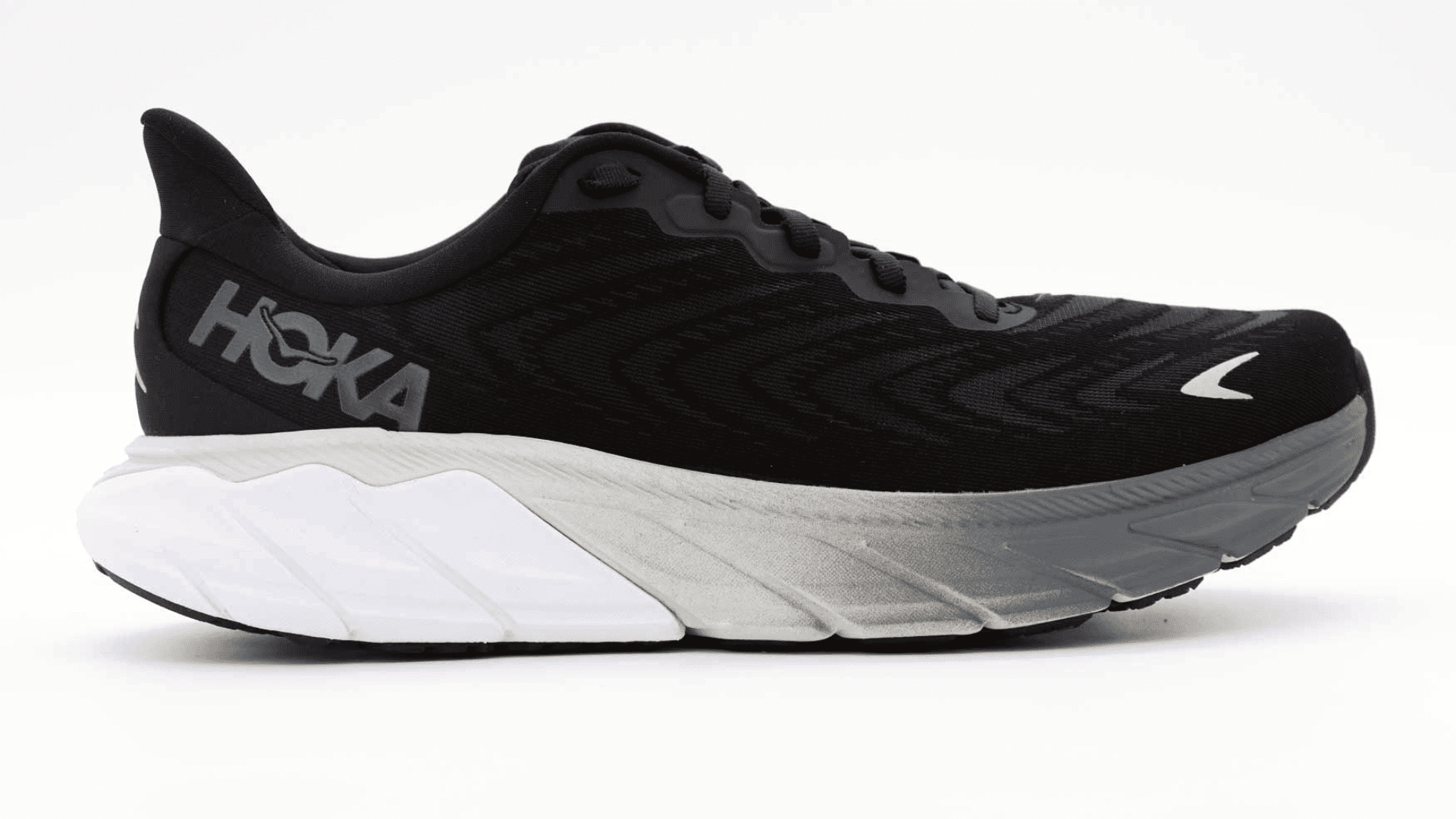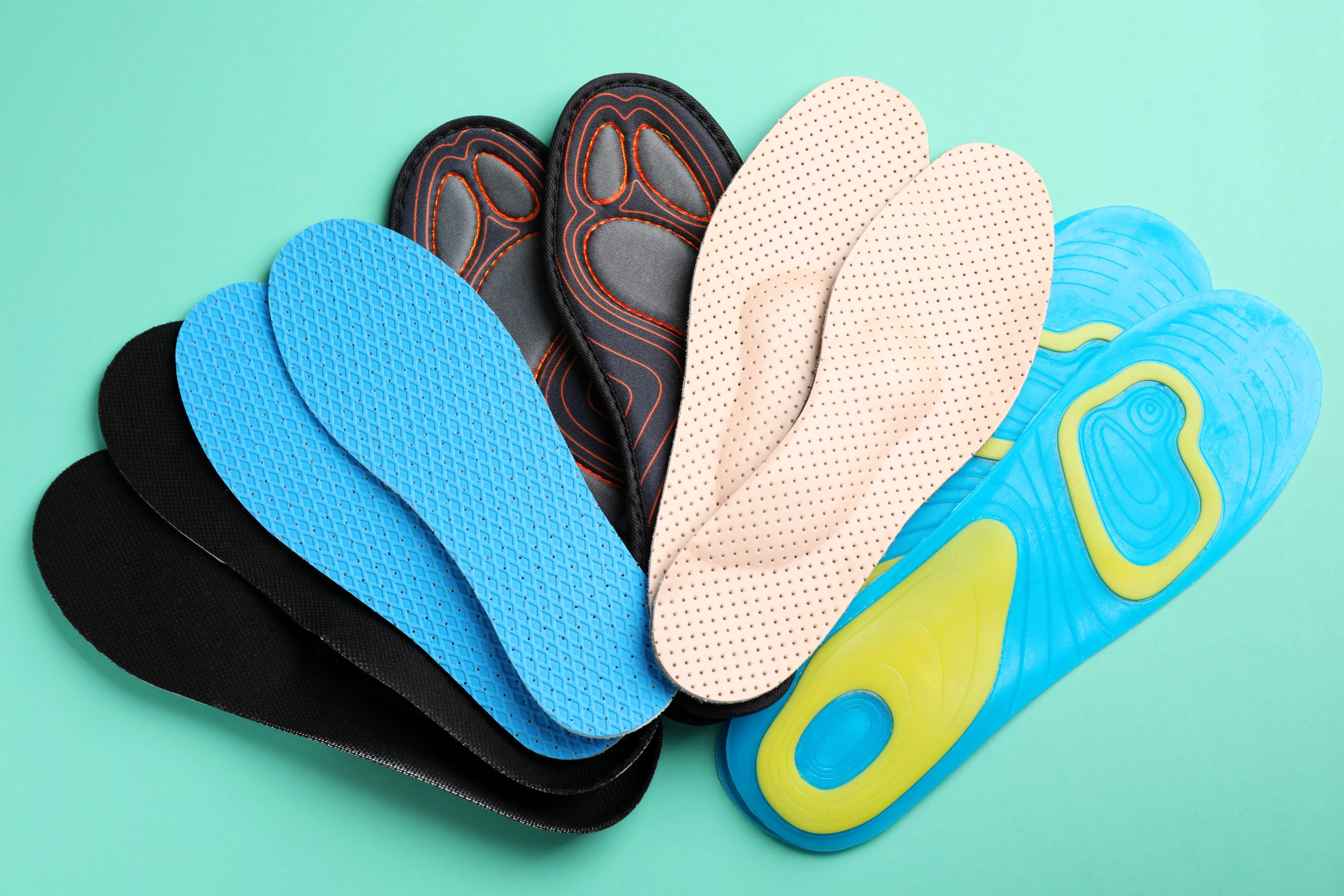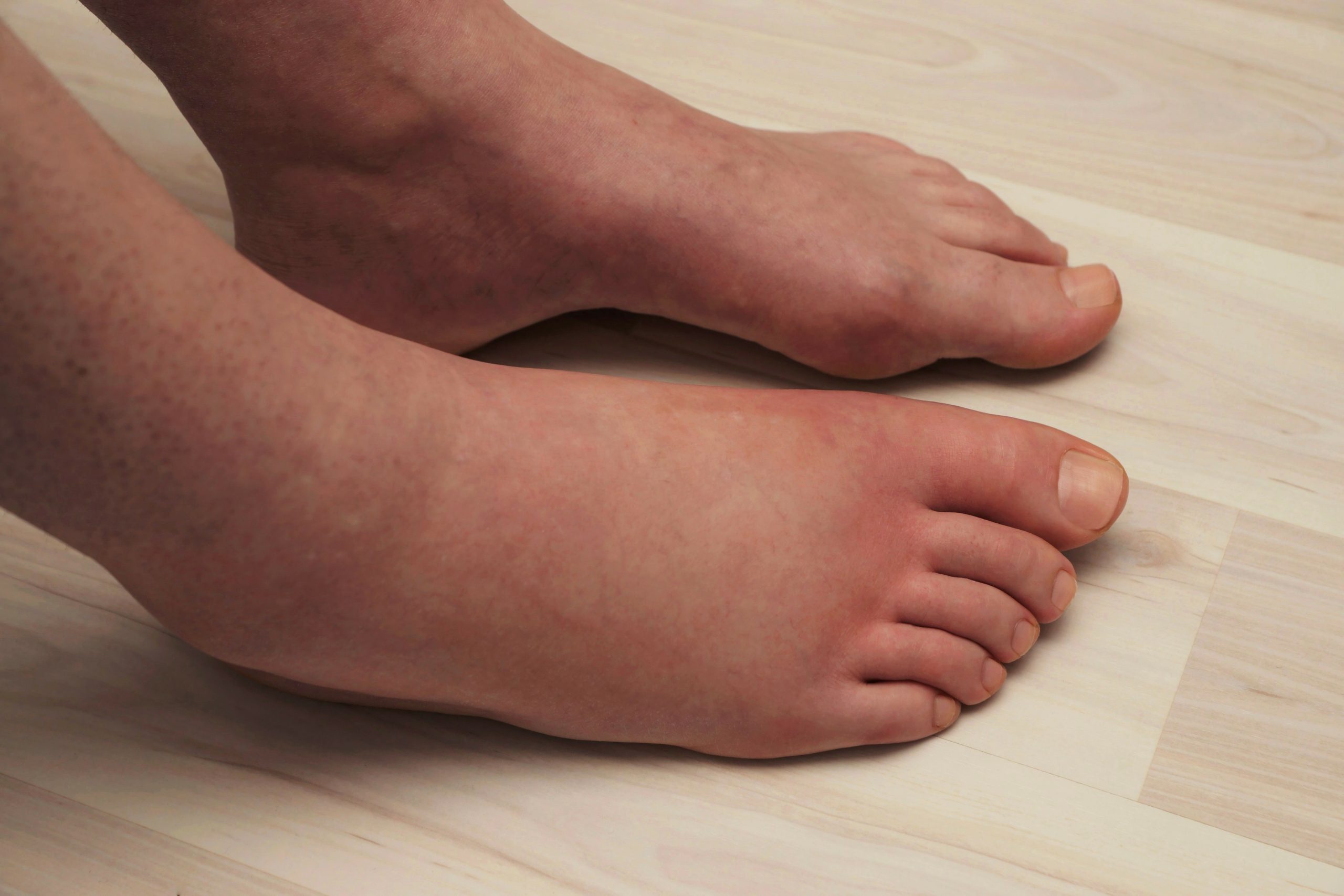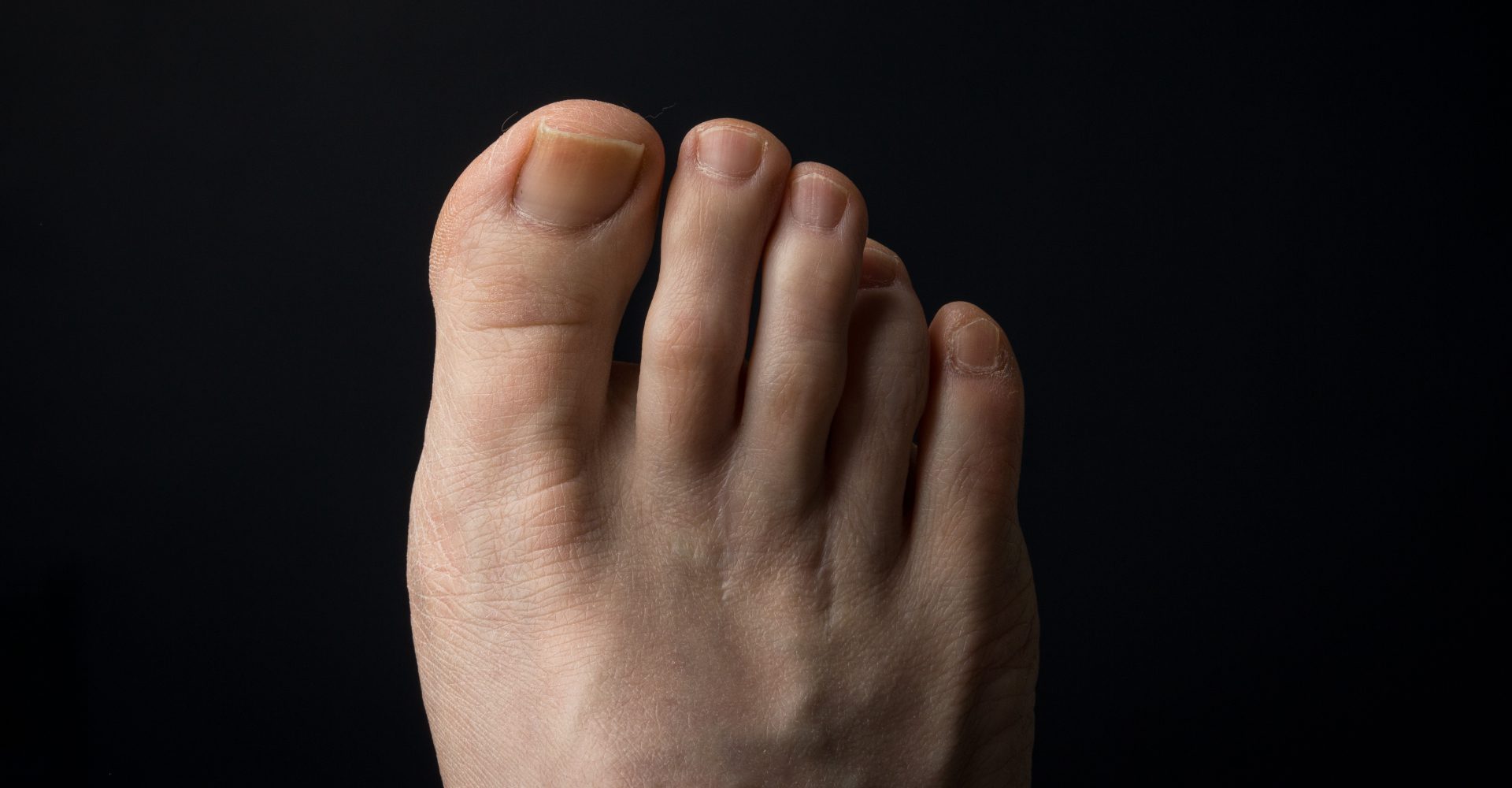
If you suffer from Morton’s neuroma, you know first-hand the discomfort and pain that this condition can cause. The condition affects the nerves in the feet, causing pain, numbness, and tingling in the toes and ball of the foot. It is often caused by wearing ill-fitting or high-heeled shoes that put extra pressure on the feet, and can be exacerbated by being overweight or participating in activities that put extra strain on the feet.
Choosing the right footwear can be a crucial step in managing the symptoms of Morton’s neuroma and preventing the condition from worsening. In this blog, we will delve into the various factors to consider when selecting shoes for Morton’s neuroma, as well as provide some helpful tips for finding the perfect fit.
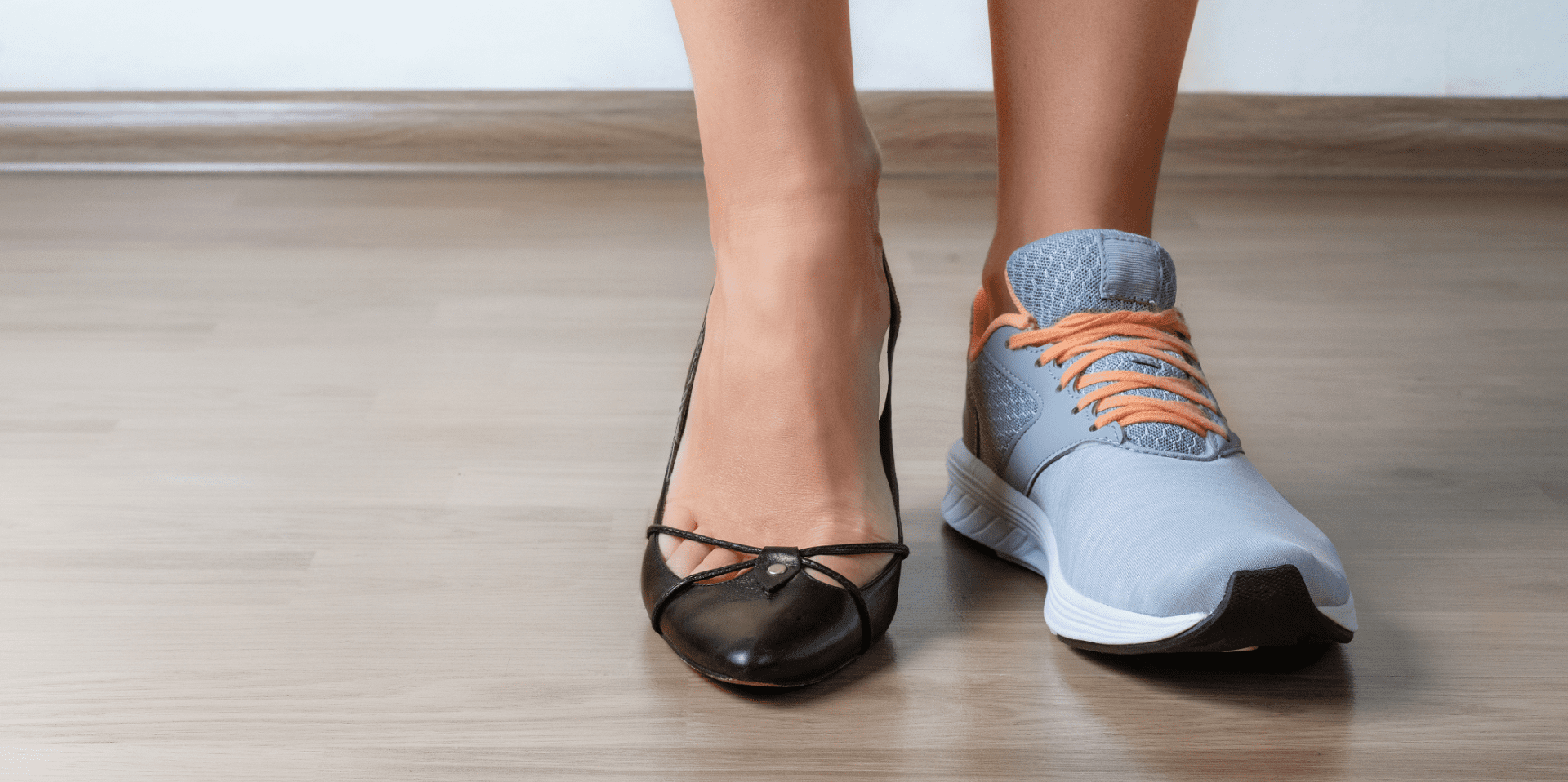
What are the primary symptoms of Morton's neuroma?
Morton’s neuroma is where the tissue surrounding a nerve in your foot thickens, usually because the nerve has been irritated or damaged. The symptoms are generally quite easy to recognise.
The most common symptoms of Morton’s neuroma include:
Pain.
People with Morton’s neuroma may experience a sharp, shooting pain in the ball of the foot, particularly when they walk or wear certain types of footwear. The pain may radiate to the toes or up the leg.
Numbness.
Some people with Morton’s neuroma may experience numbness or tingling in the toes or ball of the foot.
Swelling.
The toes or ball of the foot may appear swollen or feel swollen to the touch.
Burning sensation.
Some people with Morton’s neuroma may experience a burning sensation in the affected area.
These symptoms may come and go, or they may be constant and persist for long periods of time. If you are experiencing any of these symptoms, it is important to speak with a healthcare professional for proper diagnosis and treatment. A podiatrist will assess your feet and prescribe you with the most appropriate treatment plan for you. As always though – appropriate, good fitting footwear will help ease your pain and discomfort. We’ll get into exactly what kind of shoes can help a bit later.
Common causes of Morton's neuroma.
There are several potential causes of Morton’s neuroma, including:
Wearing ill-fitting or high-heeled shoes.
Shoes that are too tight or have a narrow toe box can put extra pressure on the toes and ball of the foot, leading to the development of Morton’s neuroma. Similarly, high-heeled shoes can cause extra pressure on the front of the foot, increasing the risk of Morton’s neuroma.
Being overweight.
Carrying excess weight can put extra strain on the feet, increasing the risk of Morton’s neuroma.
Participating in certain activities.
Activities that involve repetitive motion or put extra strain on the feet, such as running or ballet dancing, may increase the risk of Morton’s neuroma. If you are partaking in these activities, it is crucial to make sure you are supporting your feet throughout. Taking part in activities that put more strain on your feet with bad footwear, and without good body conditioning (warm up, stretches, etc.), can contribute to the development of a Morton’s neuroma.
Structural foot abnormalities.
People with structural abnormalities in the feet, such as flat feet or high arches, may be more prone to developing Morton’s neuroma.
It is important to note that Morton’s neuroma can develop in anyone, regardless of their foot type or lifestyle. However, certain factors may increase the risk of developing the condition. If you are experiencing the symptoms of Morton’s neuroma, it is important to speak with a healthcare professional for proper diagnosis and treatment.
The importance of choosing the correct footwear.
Choosing the correct footwear is an important step in managing the symptoms of Morton’s neuroma and preventing the condition from worsening. Wearing shoes that put extra pressure on the toes and ball of the foot can exacerbate the pain and discomfort caused by Morton’s neuroma. On the other hand, shoes that offer good support and cushioning can help alleviate the symptoms and provide relief.
In addition to helping manage the symptoms of Morton’s neuroma, wearing the right shoes can also help prevent the condition from developing in the first place. Shoes that fit well and offer proper support can help reduce the risk of developing Morton’s neuroma, as well as other foot conditions.
Overall, taking the time to find the right shoes can make a big difference in your foot health and comfort. If you are suffering from Morton’s neuroma or are at risk of developing the condition, it is worth investing in shoes that offer the support and comfort you need.
It’s also worth noting that if you plan on seeing a podiatrist for your neuroma, they may choose to prescribe you with an orthotic to wear in your shoes. This is another thing to consider when choosing your footwear. We recommend reading another blog that we have written about finding the best shoes for orthotics.
Factors to consider when choosing footwear.
When choosing shoes for Morton’s neuroma, there are several factors to consider in order to find a pair that will provide the support and comfort you need. These factors include:
Fit.
It is important to choose footwear that fits well and does not put extra pressure on the toes or ball of the foot. Shoes that are too tight or have a narrow toe box can exacerbate the symptoms of Morton’s neuroma. It is also important to make sure that the shoes are the correct size and do not slip off when walking.
Also, if your footwear is too big you will subconsciously claw your toes to keep them on your feet. This can put added pressure on the affected area.
Support.
Look for shoes that have good midfoot and rearfoot support. These two things will improve your stability and will help to keep your feet in a neutral position, which will relieve pressure.
Cushioning.
Shoes with good cushioning can help alleviate the pain and discomfort caused by Morton’s neuroma. Look for shoes that have a cushioned insole or midsole to help absorb shock and reduce pressure on the feet.
Arch support.
Shoes with good arch support can help distribute weight evenly across the foot and reduce the risk of Morton’s neuroma. Shoes with a contoured insole or a built-in arch support can be especially helpful.
Offloading.
Footwear with a mid or forefoot rocker will help to offload pressure from the affected area. A rocker sole will also encourage a better overall gait which can improve your general physical wellbeing.
By considering these factors, you can find shoes that offer the support and comfort you need to manage the symptoms of Morton’s neuroma and improve your overall foot health.
Brands that can help with your Morton's neuroma.
If you are looking for footwear that can help manage the symptoms of Morton’s neuroma, there are several brands that you may want to consider. When choosing shoes for Morton’s neuroma, it is important to look for styles that offer good support and cushioning to help alleviate the pain and discomfort caused by the condition.
Some brands that are known for their supportive and comfortable shoes include Xsensible, HOKA, and Asics. These brands offer a variety of styles and features, such as wide toe boxes, arch support, and cushioning, to help manage the symptoms of Morton’s neuroma and improve overall foot health. Some of these brands also offer shoes with a rocker sole design, which can help offload pressure on the forefoot and reduce strain on the ball of the foot.
HOKA.
HOKA is a good option for people with Morton’s neuroma due to their wide toe box, cushioning, and rocker sole design. The wide toe box provides extra room for the toes, which can help to reduce pressure at the forefoot where the affected nerves are. The cushioning helps absorb shock and reduce pressure on the feet, while the rocker sole encourages a natural rolling motion when walking, which can help offload pressure on the forefoot and reduce strain on the ball of the foot. These features, combined with the ability to accommodate orthotics, make HOKA shoes a good choice for people with Morton’s neuroma.
Xsensible.
Xsensible is a Dutch brand that is known for its footwear that is designed to promote healthy wellbeing through proper posture. One of the key features of Xsensible shoes is their high-quality stretch leathers, which provide a soft and comfortable feeling over the feet. The shoes also offer good balance, support, and comfort, making them a good choice for people with Morton’s neuroma or other foot conditions.
Like HOKA, Xsensible shoes also feature a rocker sole design that can help offload pressure on the forefoot and reduce strain on the ball of the foot. In addition, every Xsensible style has a removable insole, making them a good choice for people who are following a treatment plan that includes the use of orthotics.
Asics.
Asics is a good option for people with Morton’s neuroma due to their roomy forefoot and cushioning. The roomy forefoot provides plenty of space for the toes to spread out and function correctly, which can help reduce pressure on the damaged nerves in the ball of the foot, and alleviate the pain and discomfort caused by Morton’s neuroma. The cushioning at the heel and forefoot helps absorb shock and reduce pressure on the feet, further helping to alleviate the symptoms of the condition. Additionally, Asics shoes have a removable insole, allowing you to use your own orthotics if needed.
Final thoughts.
Choosing the correct footwear is an important step in managing the symptoms of Morton’s neuroma and preventing the condition from worsening. Shoes that fit well and offer good support and cushioning can help alleviate your pain and discomfort, and improve overall foot health. By considering factors such as fit, support, cushioning, and arch support, you can find shoes that meet your needs and provide the relief you are looking for.
Also, remember to consult a podiatrist if you are concerned about your foot health. A podiatrist can assess your feet, give you an accurate diagnosis, and suggest the best course of action to take.
If you need a helping hand with the brands highlighted in this blog, we recommend booking a free personal shopping appointment with one of our shoe-fitters.
It can be scheduled at your own convenience, and you will benefit from the valuable advice that will change the way that you shop for footwear.



